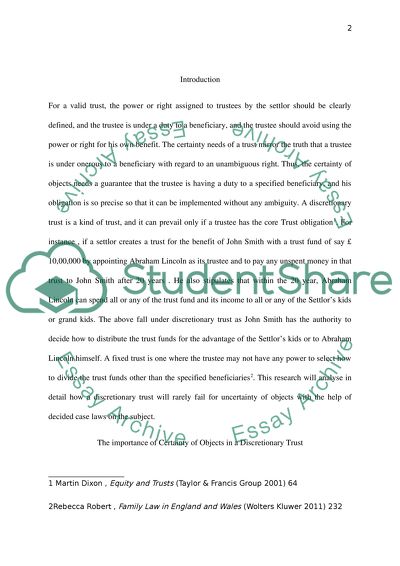Cite this document
(“Equity and trust Essay Example | Topics and Well Written Essays - 2750 words”, n.d.)
Equity and trust Essay Example | Topics and Well Written Essays - 2750 words. Retrieved from https://studentshare.org/law/1486267-equity-and-trust
Equity and trust Essay Example | Topics and Well Written Essays - 2750 words. Retrieved from https://studentshare.org/law/1486267-equity-and-trust
(Equity and Trust Essay Example | Topics and Well Written Essays - 2750 Words)
Equity and Trust Essay Example | Topics and Well Written Essays - 2750 Words. https://studentshare.org/law/1486267-equity-and-trust.
Equity and Trust Essay Example | Topics and Well Written Essays - 2750 Words. https://studentshare.org/law/1486267-equity-and-trust.
“Equity and Trust Essay Example | Topics and Well Written Essays - 2750 Words”, n.d. https://studentshare.org/law/1486267-equity-and-trust.


